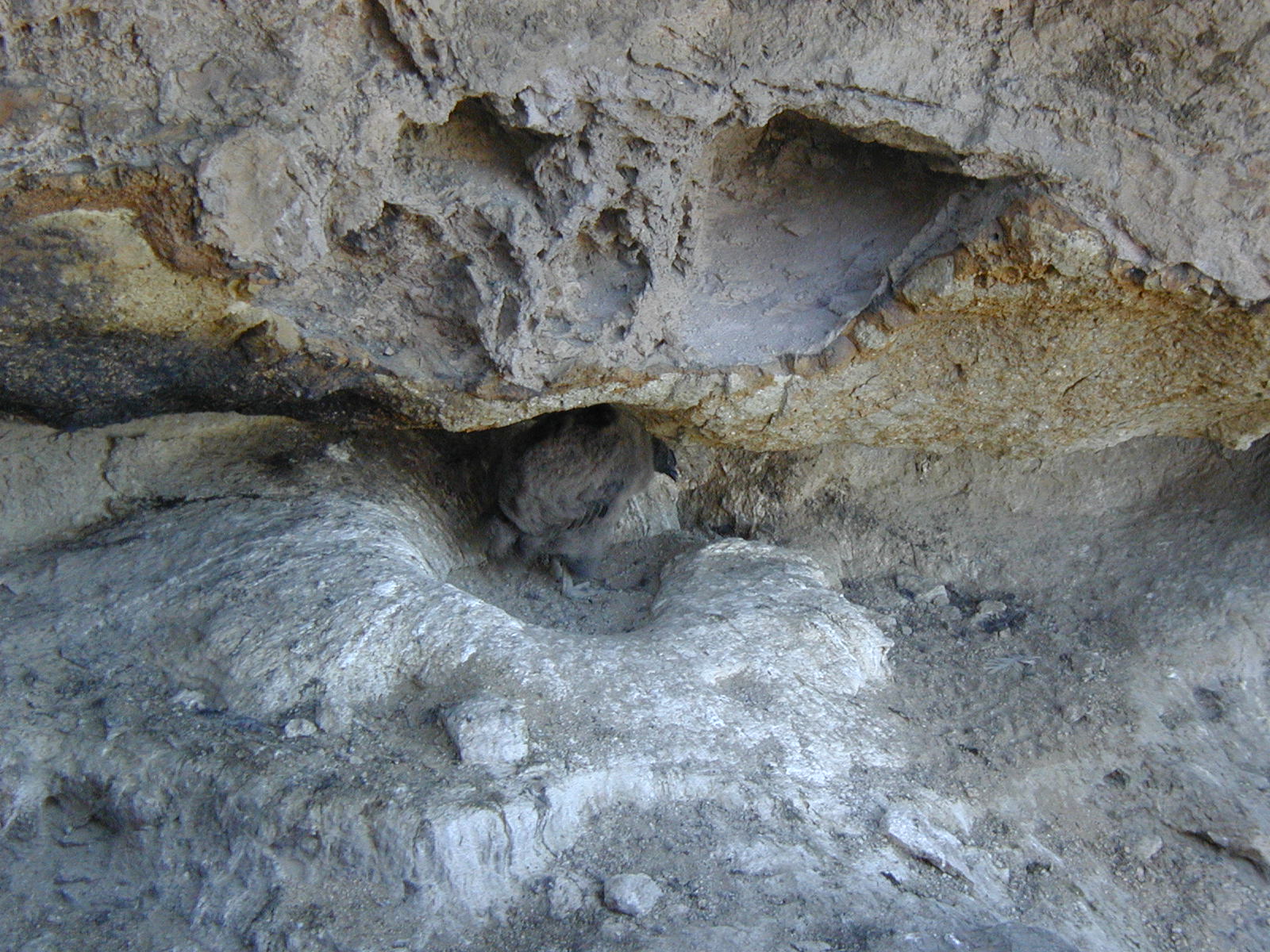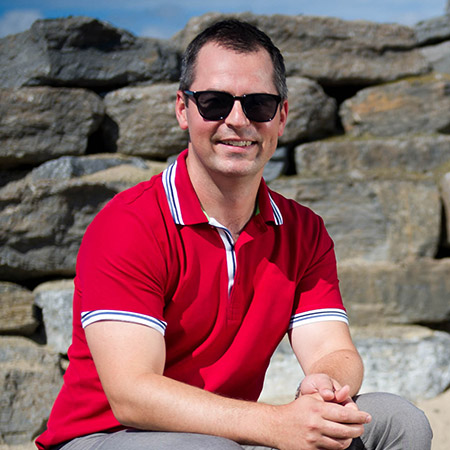Faculty Members Involved in Condor Nest Study


University Wide
MyQueensU - SOLUS, MyHR and more Office 365 Outlook on the web - Email onQ Library eReserves Web ProxyFaculty / School Portals
Business - Program Portals Education - Faculty & Staff Portal Grad Studies - Faculty & Staff Portal Health Sciences - Elentra Law - QLaw Change password / Manage NetID
Date
Wednesday May 17, 2023Location
Craft Beer Market, CalgaryDear Geological Sciences and Geological Engineering Alumni,
Our department will be attending GeoConvention 2023 (May 15 – May 17) at the Telus Convention Centre in Calgary, Alberta. If you plan to attend the conference, please come say hello at booth 323!
If you are attending the conference, or you are an Alumnus close to Calgary, please join us at the Queen's Geological Sciences and Geological Engineering “GeoConvention Alumni Reception” on May 17th!
Please note you do not need to be registered at the convention to attend the reception!
Dr. Dan Layton-Matthews, Acting Head of Department, will be attending the Alumni reception and providing updates on GSGE! Ms. Brittany Jennings (Master of Earth and Energy Resource Leadership Program Manager), and Mr. Paul Bass (Department Manager) will also be in attendance and are looking forward to catching up our Alumni!
Date
Friday April 21, 2023Location
Miller Hall, Room 201On Friday, April 21, Dr Rachel Schwartz-Narbonne, PhD, MRSC, FHEA, Senior Lecturer in Chemistry at Sheffield-Hallam University in the UK, will be giving a talk for the Queen's Department of Geological Sciences and Geological Engineering.
Talk Title: "Reframing the Mammoth Steppe: Isotopic Insights on Pleistocene Megafauna"
Date: Friday, April 21
Time: 1:30pm
Location: Miller Hall, Room 201
Coffee and treats will be served.
Abstract:
The Pleistocene mammoth steppe was a megacontinental ecosystem that spanned northern Eurasia and northwestern North America where diverse species of megafauna co-existed (e.g. woolly mammoth; Mammuthus primigenius, horse; Equus spp., and bison; Bison spp.). Understanding the species’ individual dietary niches, and how those changed with environmental shifts and interactions between species, is essential to revealing how this complex ecosystem was maintained, and what contributed to its extinction. A metastudy of stable carbon and nitrogen isotopic compositions of collagen revealed dietary niche overlap between megaherbivores. Compound-specific stable isotopic studies of amino acids can be used to separate dietary niches from metabolic effects. These were used to solve the “woolly mammoth conundrum”, revealing that the woolly mammoth consumed a distinct diet from other mammoth-steppe herbivores. Comparison of these amino acids isotopic compositions to modern herbivores such as elephants hold potential to reveal further information about the diets of mammoth steppe megafauna.
Bio:
Dr. Rachel Schwartz-Narbonne is interested in a wide range of environmental chemistry. Her first academic job was working on boron and lithium isotopes as a summer student in the Queen's Faculty for Isotope Research (QFIR) and during her undergraduate at the University of Ottawa (Canada) she worked on green chemistry methods to produce nanoparticles. From there she went on to a PhD at the University of Western Ontario (Canada) where she used carbon and nitrogen isotopes to understand the ecology of Pleistocene megafauna. Her post-doc at Newcastle University (UK) used lipid biomarkers to investigate the nitrogen cycle through time, from the present going back to the Jurassic. Dr. Rachel Schwartz-Narbonne is currently a Senior Lecturer in Chemistry at Sheffield Hallam University (UK), where she is bringing her love of the environment and chemistry background to teaching a range of bioscience and chemistry classes, as well as to her research career using microbial lipid biomarkers to study wastewater and community science to study the effects of soil pollution on microbial communities.
Congratulations to Dr. Christopher Spencer, on placing first in the Queen's Art of Research photo contest, for the Climate Action category.
Date
Tuesday April 11, 2023Location
Miller Hall, Room 201Howard Street Robinson Lecture Tour
On Tuesday, April 11, Dr. David Corrigan, Geological Survey of Canada (retired), Corrigan Geoscience and GAC's 2022 Howard Street Robinson medalist, will be giving a talk for the Queen's Department of Geological Sciences and Geological Engineering.
Talk Title: "The Archean-Proterozoic transition and emergence of modern-type plate tectonics"
Date: Tuesday, April 11
Time: 12:30pm
Location: Miller Hall, Room 201
Coffee and treats will be served.
Abstract:
The Archean-Proterozoic transition between ca. 2.5 and 1.8 billion years ago was characterized by fundamental transformations in the scale and style of plate tectonics, introducing, for the first time in Earth’s history, processes that more closely resembled those found in modern environments. These processes include continental margin rifting and eruption of continental flood basalt, establishment of passive continental margins, arc and back-arc magmatism, generation of supra-subduction zone ophiolites, as well as accretion of juvenile terranes and micro-continents. Elements of modern-type continent-continent collision also emerged, such as indentation tectonics, formation of oroclines, as well as deep exhumation of continental crust and escape tectonics. This lecture focuses on the Trans-Hudson orogen, which has preserved a ~ 270 m.y. long, near-complete record of ocean opening, closure, accretion, and collision spanning from Saskatchewan to the North Atlantic coast and beyond. We will also see how thick, cold sub-continental lithospheric keels acquired during the Archean played a role in subsequent tectonics and preservation of continental crust.
Bio:
Dr. David Corrigan completed his B.Sc. in geology at the University of Ottawa in 1986, followed by a M.Sc. degree at Dalhousie University in 1990. He then completed a PhD degree in 1995 at Carleton University, where he was awarded the Senate Medal for Academic Achievement. This was followed by a Post-Doctoral research position at Memorial University. In 1997 Dr. Corrigan was hired as Research Scientist at the Geological Survey of Canada, where he led a number of multidisciplinary geoscience projects in the Trans-Hudson orogen and bounding Archean cratons. This research forms the foundation of his research on early manifestation of modern-type tectonic processes during the Proterozoic era. He recently retired from the GSC and presently works as a consultant for the mineral exploration industry.
Date
Tuesday April 18, 2023Location
Miller Hall, Room 102/106Tuesday, April 18, 12 PM - 03 PM: Fourth-year Capstone design projects poster presentation. Miller 102/106.
Date
Tuesday April 18, 2023Location
Miller Hall, Room 102/106Tuesday, April 18, 9 AM - 12 PM: Fourth-year undergraduate research poster presentation. Miller 102/106.
The Miller Museum of Geology, located in Miller Hall on Queen's University campus, saw a record number of visitors over the March Break last week.
Approximately 150 children of all ages participated in some of the fun drop-in activities set up by Museum Curator, Linda Tsuji, with total museum attendance likely well over 200.
Date
Thursday March 30, 2023Location
Miller Hall, Room 201
On Thursday, March 30, Tim Haltigin, Senior Mission Scientist in Planetary Exploration at the Canadian Space Agency, will be giving a talk for the Queen's Department of Geological Sciences and Geological Engineering.
Talk Title: "From following the water to boots on the ground: The importance of subsurface ice on Mars"
Date: Thursday, March 30
Time: 11:30am
Location: Miller Hall, Room 201
Coffee and treats will be served.
Bio:
Tim Haltigin is the Senior Mission Scientist in Planetary Exploration at the Canadian Space Agency, where he helps lead Canada’s efforts in exploring the solar system. He received his PhD from McGill University, where his research revealed similarities in the evolution of ice-rich terrains on Earth and Mars. He has worked on a variety of robotic missions, including OSIRIS-REx and the Mars Sample Return campaign, and is currently the Science Integration Lead on the International Mars Ice Mapper mission concept. More details about his projects and background are at sciencewithtim.webnode.com.
Date
Thursday March 23, 2023Location
Miller Hall, Room 105